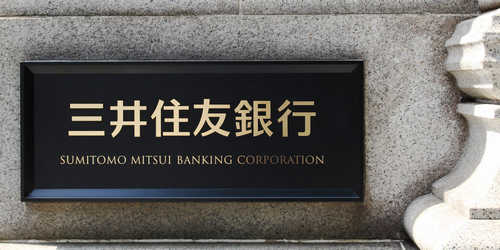The bank said on Friday last week that a cross-border proof-of-concept test was successfully completed involving Mitsui & Co, a Japanese general trading company, Indorama Ventures, a Thai company in the intermediate petrochemicals business, and Bangkok Bank, Thailand’s third-largest bank.
Sumitomo Mitsui Banking Corporation (SMBC), the third largest bank by assets in Japan, is set to begin utilizing R3’s Marco Polo trade finance blockchain on a commercial basis by the end of the year.
In the course of the exercise, Bangkok Bank issued a payment guarantee for Indorama Ventures to Mitsui & Co. Based on that guarantee, SMBC would have been able to undertake receivable financing in a real-world setting.
The platform allows for participants to update purchase orders, invoices, logistics information, shipping schedules and port information, while auto-matching leads to highly-efficient data reconciliation, according to the statement.
Currently, the trade financing process remains to be manual and paper-based and is seen as highly inefficient.
Marco Polo, which utilizes open-source Corda, is a network backed by Dublin-based TradeIX and New York-based R3 LLC. It counts a number of major financial institutions as its members, including Bangkok Bank, Mitsui & Co, SMBC, Bank of America, BNP Paribas, Mastercard, Standard Chartered, among others.

The network recently completed tests for trade finance transactions between Russia and Germany.
Trade finance using blockchain is a busy space, with an estimated 30 consortia seeking to apply the technology to the business. Competitors include Voltron, which also utilizes Corda and counts Bangkok Bank, HSBC and Standard Chartered among its partners, as well as ethereum-based CargoX and eTrade Connect, which uses. Hyperledger Fabric.
The recent test follows a similar proof-of-concept exercise conducted by the SMBC earlier in the year, also involving Mitsui & Co. Very little information was provided by the bank about the February 2019 test, but it said at the time that it expected to commercialize Marco Polo by Q3 this year.
Japan’s Nomura Invests in Line’s LVC to Develop Blockchain Financial Services
Japan’s oldest brokerage has formed a blockchain-focused partnership with the operator of the country’s most popular messenger.
In an announcement dated Oct. 4, Nomura Holdings, the parent company of Nomura Securities, said it made an investment in LVC, a subsidiary of South Korean-controlled Line, following an agreement signed on Sept. 24.
Terms were not disclosed.
Nomura said that the venture will be developing financial services utilizing blockchain technology. The partnership will make use of Line’s large user base-81 million in Japan-and well-developed user experience and Nomura’s financial experience and expertise.
The release also mentions LVC’s Bitmax exchange, which went live on Sept. 17, less than two weeks after receiving approval from Japan’s Financial Services Agency (FSA).
In January 2019, the companies announced that they were engaged in negotiations on the deal with a March target for final agreement. The earlier disclosure mentions that LVC’s capital will be increased through a placement of new shares to Nomura.
In the January announcement, LVC’s capital is listed as 1.21 billion yen ($11.3 million) as of Jul. 31, 2018. In the recent release, the company’s capital is listed as 5.06 billion yen as of Oct. 4. 2019, suggesting that Nomura may have invested almost 4 billion yen in the company.
Shinjuku, Tokyo-based Line is 73.36-percent owned by South Korea’s Naver, a listed technology conglomerate.
Nomura has been on a tear for some time in terms of blockchain investment. In May 2018, it formed Komainu with Ledger and Global Advisors to develop digital custody solutions. In July this year, the company invested in San Francisco-based Quantstamp, a smart-contract security company, and in September this year, it set up Boostry with Nomura Research Institute. The venture is developing blockchain solutions for trading securities. Just last week, Nomura and five other brokerages formed a self-regulatory organization (SRO) for crypto offerings.
While Japanese regulators have been cautious due to the 2014 collapse of Mt Gox and the 2018 hack of Coincheck, recent signs suggest they are warming crypto. In addition to approving new exchanges, the FSA has issued guideline on fund investment in crypto.


